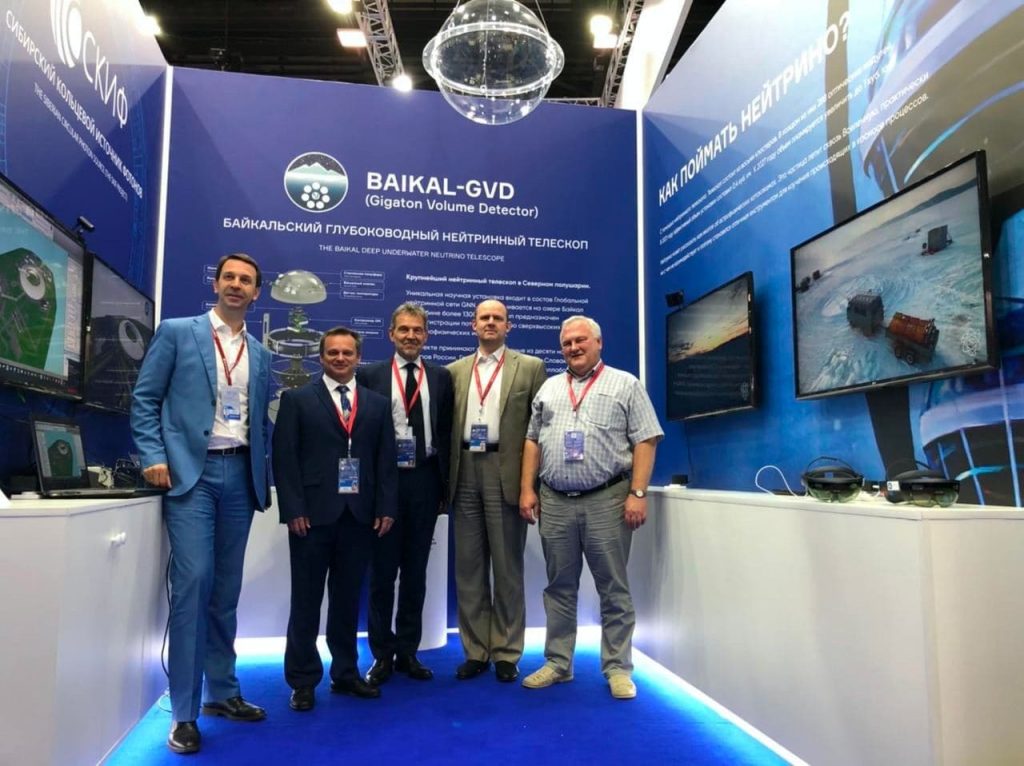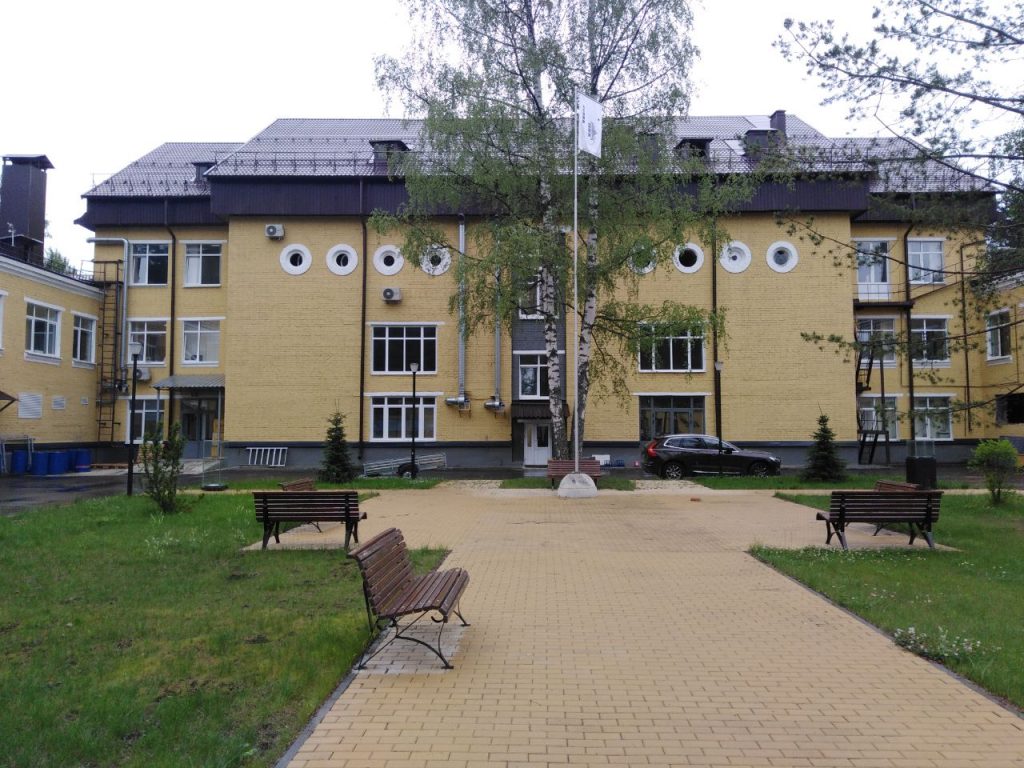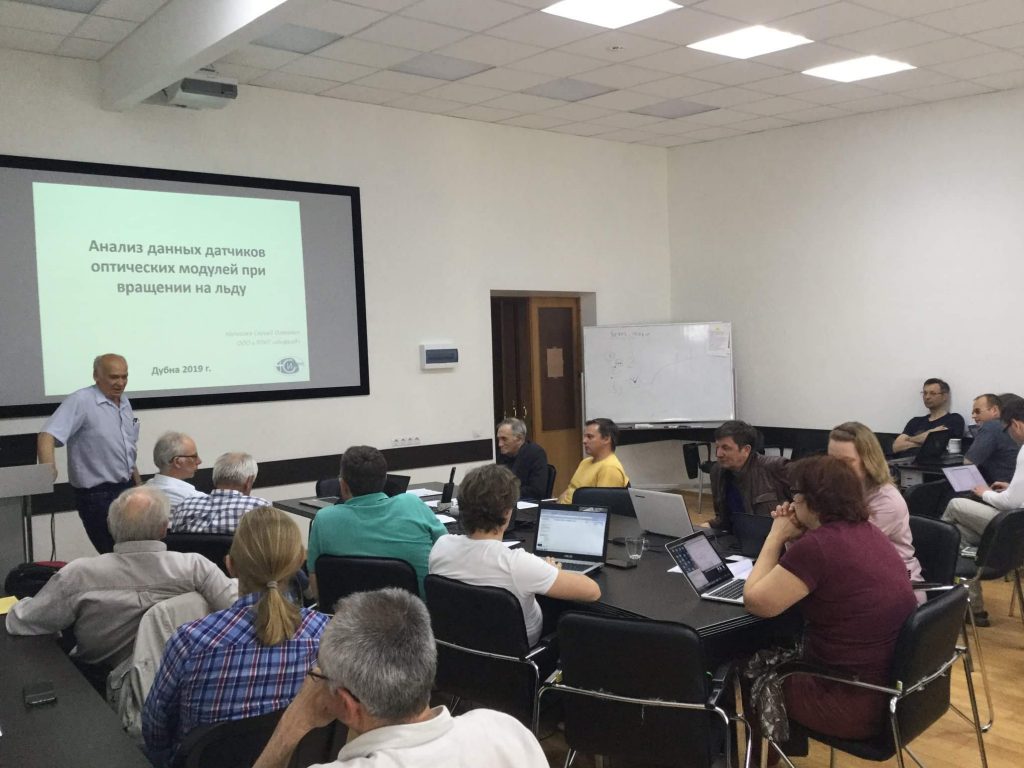News & Media

We congratulate Batzhargal Ulzutuev on the successful defence of his master thesis “Measuring the atmospheric muon flux with the Baikal-GVD Neutrino Telescope”! We wish him every continued success and new scientific achievements!
Summarizing the Results of the Baikal-GVD Collaboration Meeting
From 30 May to 2 June 2023, the workshop of the international Baikal-GVD Collaboration took place at the Experimental Department of Nuclear Spectroscopy and Radiochemistry of the Dzhelepov Laboratory of Nuclear Problems of JINR. This year, it was held in a hybrid format—about 50 scientists attended the workshop in person, above 20 specialists participated remotely.
The international Baikal-GVD Collaboration embraces physicists, engineers, programmers, and technicians involved in the construction of the Baikal Deep Underwater Neutrino Telescope, a state-of-the-art facility for answering basic questions and tackling complex problems in particle physics, astrophysics, and multimessenger astronomy.
At the meeting, the 2023 Baikal Winter Expedition was summed up—two new clusters and one experimental string are installed, faulty equipment repaired.
The detector status, features of data processing of this season, results of high-energy event selection of the last season were discussed.
A special section was devoted to the Monte Carlo simulations of background and signal events and also to the related activities performed during the last half of the year.
Also, some reports were given on improvements in the efficiency of track-like event reconstruction, optimization of high-energy neutrino event selection, changes in the automatic system of tracking and creating alerts, and on prospects for using machine learning in data processing.
In the final talk, preliminary plans on deploying the facility in 2024 were outlined.
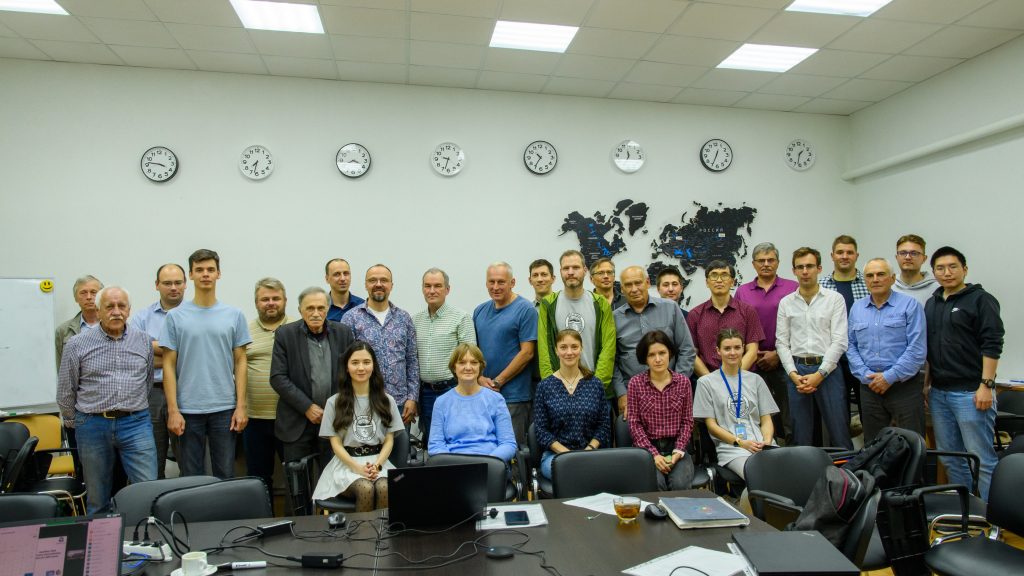
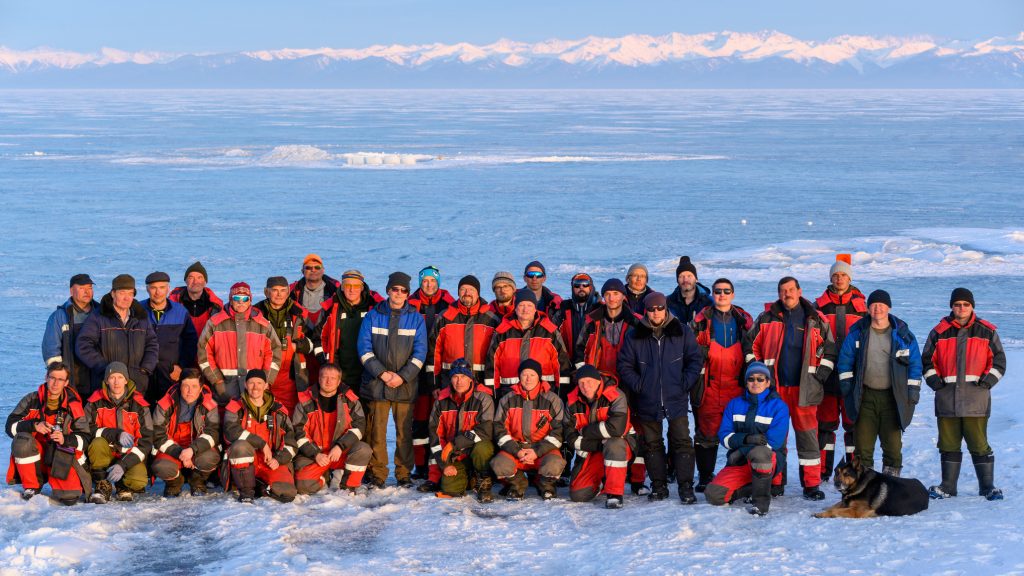
Winter Expedition 2023 to Construct the Baikal-GVD Deep Underwater Neutrino Telescope Completed
During the 2023 Winter Expedition, the Baikal-GVD Collaboration installed two new telescope clusters, repaired and updated previously mounted detector elements and proceeded with developing the data transmission system inside the facility via optical cables.
The Baikal-GVD Neutrino Telescope is aimed at detecting and investigating ultrahigh-energy neutrino fluxes from astrophysical sources. Scientists are going to study not only processes with huge energy emission from the distant past but also galaxy evolution, supermassive black hole formation and particle acceleration mechanisms.
The Baikal Neutrino Telescope is a neutrino detector located in Lake Baikal 3.6 km offshore at a depth of about 1300 m. This unique scientific facility is an important tool of multimessenger astronomy, a new powerful method for investigating the Universe. Baikal-GVD is one of the three operating neutrino telescopes across the globe and is a constituent of the Global Neutrino Network (GNN), along with IceCube at the South Pole and KM3NeT in the Mediterranean Sea.
The Baikal-GVD Telescope is the largest in the Northern Hemisphere and the second by size in the world. To date, 12 clusters, spaced 250 to 300 m from each other, are put into operation. Since 8 April 2023, they have been taking data. Each cluster is an individual detector of 8 vertical strings with optical modules along them (36 items on each string). At present, the telescope comprises about 3500 photodetectors. By 2027, the facility volume is scheduled to be about one cubic kilometre.
“The 2023 season turned out to be a strength test to the expedition team. The weather made the challenge even tougher, but at the same time, it provided us with the thick and safe ice sheet until the activities on the ice were finished. Despite these conditions, the systematic changes both in preparing the equipment and in deploying the facility were made. I would like to mention the increased expertise of the team—a forced restructuring did not impede the fulfilment of previously scheduled tasks,” remarks Igor Anatolevich Belolaptikov, the head of expedition activities, head of the facility of the Dzhelepov Laboratory of Nuclear Problems of the Joint Institute for Nuclear Research.
“A planned step on ramping up the effective volume of the detector was successfully made. To implement the initial project on constructing the high-energy neutrino detector with an effective volume of about one cubic kilometre, two or three steps are left. The outlines of further development of the detector on the basis of the fibre-optical data-acquisition system start showing up,” says Grigory Vladimirovich Domogatsky, the Baikal-GVD Collaboration head, corresponding member of RAS, the head of the Laboratory of High-Energy Neutrino Astrophysics of the Institute for Nuclear Research of RAS.
The Baikal-GVD Neutrino Telescope is being constructed by concerted efforts of the international collaboration with the leading role of the Institute for Nuclear Research of the Russian Academy of Sciences (INR of RAS, Moscow), the founder of this experiment and the direction “high-energy neutrino astronomy” in the world, and of the Joint Institute for Nuclear Research (JINR, Dubna). Above 70 scientists and engineers from nine research centres of Russia, the Czech Republic, Slovakia and Kazakhstan participate in the project.
The 2023 expedition was organized by the Institute for Nuclear Research of RAS (Moscow) and the Joint Institute for Nuclear Research (Dubna).
2020 Winter Baikal-GVD Collaboration Meeting
From 6th to 9th of December 2022, the first in-person meeting of the international Baikal-GVD Collaboration was held at the Joint Institute for Nuclear Research. Over four days, more than 55 participants of the Collaboration (including those who could not attend in person and participated via Zoom) discussed the current state of the telescope, preparations for the next winter expedition, the operation of the data-collection and processing system and event reconstruction algorithms. The reports covered all topics of the Baikal-GVD experiment from the latest results of measuring the isotropic flux of astrophysical neutrinos to the further plans of the facility development.
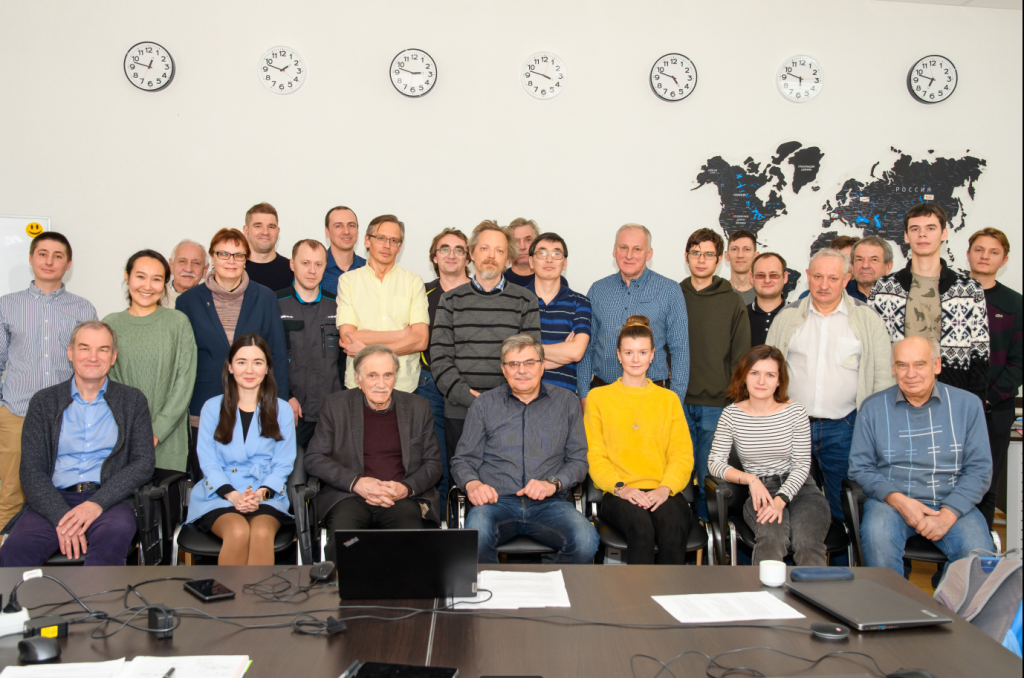
A discussion “Neutrinos, the elusive carriers of misteries of the universe” was held on the St. Petersburg International Economic Forum 2021. Dmitry Naumov and Igor Belolaptikov from the Dzhelepov Laboratory of Nuclear Problems participated in the event. The discussion took place on the section of the Ministry of Science and Higher Education of the Russian …
Baikal-GVD on the St. Petersburg International Economic Forum 2021 Read More »
Results of the recent Baikal winter expedition were summed up, problems and plans were discussed. Participants and attracted experts presented more then 20 reports about the Baikal-GVD project.
Annual Baikal collaboration meeting took place in Dubna, 27-30 May 2019

- Home
- Hardware
- Software & Data
- Collaboration
- Publications
- News & Media
- Photos & Video
- Contacts
